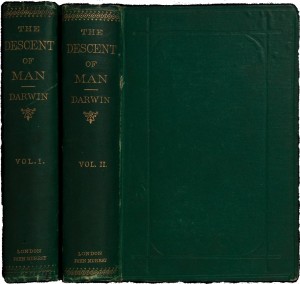The views expressed in our content reflect individual perspectives and do not represent the authoritative views of the Baha'i Faith.
Part I: Spiritual, but not Religious? Belief and Human Nature
These are actual letters from children to God:
Dear God, Did you mean for the giraffe to look like that or was it an accident? – Norma
Dear God, Instead of letting people die and having to make new ones, why don’t You just keep the ones you have now? – Jane
Dear God, I want to be just like my daddy when I get big, but not with so much hair all over. – Sam
Dear God, Thank you for my baby brother, but what I prayed for was a puppy. – Joyce
Most children seem to innately, innocently believe in God — but we typically think of adults as much more skeptical. Actually, it turns out that deep belief in a Supreme Being is mighty close to unanimous among humans.
In fact, the existence of a Creator is one of the few things people everywhere agree on, consistently and almost universally. Recent polling by the Pew Research Center for the People & the Press and the Pew Forum on Religion & Public Life found more than ninety percent of Americans believe in the existence of a Supreme Being. The Pew researchers report that even most people who say they are agnostics, and some who identify as atheists, say they believe in God or a universal spirit. Combined with similar polling from other developed nations, we now know that the vast majority of people in the Western world (the polling results consistently come in somewhere between 88% and 96%) strongly believe in a Creator. Belief in God is so widespread, the research tells us, that scientists have come to see it as one of our defining human characteristics.
This phenomenon, which occurs across class, culture, geography and upbringing, has recently led a wide array of researchers to observe that humans may be hard-wired to believe in a Supreme Being.
Surprisingly, one of the first scientists to identify this inherent trait in people was Charles Darwin, in his 1871 book The Descent of Man. Darwin writes “a belief in all-pervading spiritual agencies seems to be  universal; and apparently follows from a considerable advance in the reasoning powers of man, and from a still greater advance in his faculties of imagination, curiosity and wonder.” In fact, Darwin linked this new idea to his theory of evolution, saying that evolving religious and altruistic beliefs could give believers an evolutionary advantage: “There can be no doubt that a tribe including many members who, from possessing in a high degree the spirit of patriotism, fidelity, obedience, courage and sympathy, were always ready to aid one another, and to sacrifice themselves for the common good, would be victorious over most other tribes; and this would be natural selection.”
universal; and apparently follows from a considerable advance in the reasoning powers of man, and from a still greater advance in his faculties of imagination, curiosity and wonder.” In fact, Darwin linked this new idea to his theory of evolution, saying that evolving religious and altruistic beliefs could give believers an evolutionary advantage: “There can be no doubt that a tribe including many members who, from possessing in a high degree the spirit of patriotism, fidelity, obedience, courage and sympathy, were always ready to aid one another, and to sacrifice themselves for the common good, would be victorious over most other tribes; and this would be natural selection.”
Historians, anthropologists and archaeologists tell us that across the span of the history of the world, there is evidence that every culture in every location at every point in time has invariably developed a mystical, supernatural or religious belief system, most with remarkably common beliefs in one Creator. The Baha’i teachings agree:
If we investigate the religions to discover the principles underlying their foundations we will find they agree, for the fundamental reality of them is one and not multiple. – Abdu’l-Baha, Foundations of World Unity
When a distinct human behavior is so universal, scientists view it as an inclusive evolutionary adaptation, along with species-wide traits like standing upright and the development of language. Evolutionary scientists tell us that such a widespread adaptation, by its very nature, must be something so helpful to us that the people who had it thrived, and the people who didn’t slowly died out — until the entire human race was eventually left with that dominant trait.
Was Darwin right — did belief in God become so universal among people because it confers an evolutionary advantage for us? And what could possibly be the evolutionary advantage of believing in God? Part two of this article will explore those profound questions.
















Comments
Sign in or create an account
Continue with Googleor